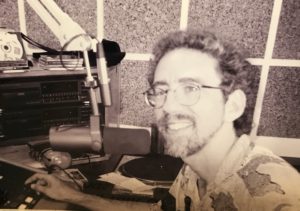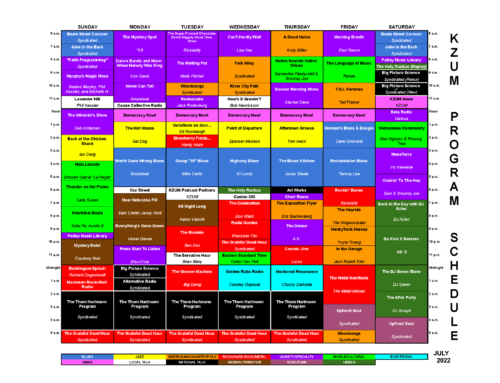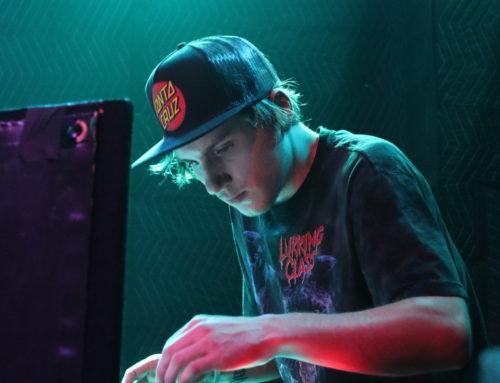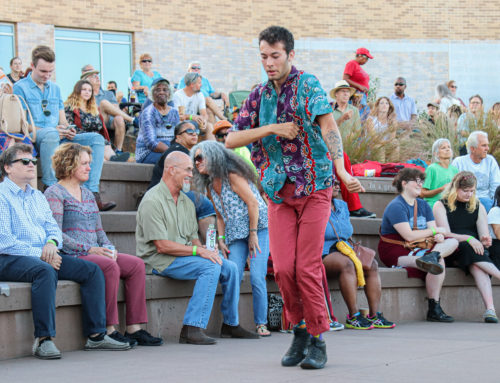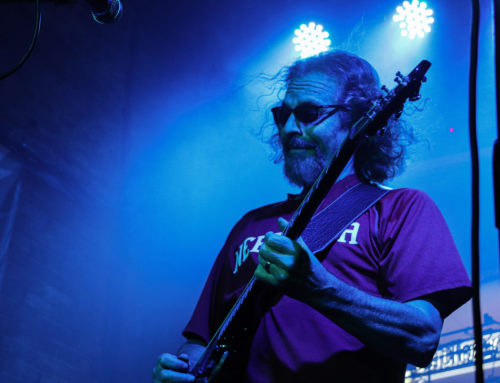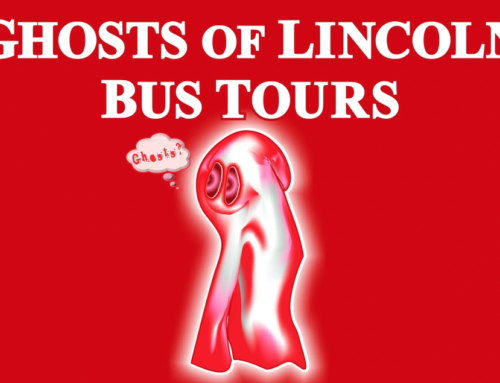By Tom Ineck
Host and “Mayor of NightTown” (August 1993-September 2018)
Sept. 12, 2018
Editor’s note: After 25 years, the final episode of “NightTown” will air on Thursday, Sept. 13, from 8:30 to 10 p.m. on KZUM.
“NightTown” was founded in August 1993 as a “nocturnal refuge for the romantic heart,” a place where listeners could shed the worries of the day and find solace in the romance and uplifting spirit of classic and contemporary jazz. It was intended as a comforting place where “the roads are clearly marked and the welcome mat is always out.”
After eight years writing about jazz for the Lincoln Journal Star — and receiving some 400 CDs a year from labels, artists and agents—I began to grow frustrated by my limited ability to describe to readers just how the music moved me. When words failed, I just wanted to say, “Here, listen to this!” Several friends had hosted programs on KZUM, and I had been a fan of the station since its inception, so I decided to give it a try.
The title of “NightTown” was inspired by pianist Don Grolnick’s 1992 release of the same name, which featured mostly original tunes performed by an incredibly talented seven-piece combo. Like the program I envisioned, it evoked a nocturnal mood that was alternately relaxing, mysterious and adventurous. An early promo for the show set the imaginary scene: “In NightTown, a cool rain is pounding the pavement, settling the dust of summertime in the city. The streets are like wet canvasses, covered with the abstract paintings of blurred, neon reflections. Steam rises from the empty sidewalks, and cool jazz is heard through every window.”
Throughout its 25 years, “NightTown” was also inspired and guided by the music of bassist Charlie Haden’s Quartet West, which some clever critic dubbed “jazz noir.” Haden himself was a big fan of film noir — as am I. In the liner notes of his 1996 release “Night and the City” a duo with pianist Kenny Barron, Haden includes the following excerpt from a poem called “Night Piece (after Dickens)”:
“…in this stranger’s wilderness of a city, it is a still night. Steeples and skyscrapers grow more ethereal, rooftops crowded with towers and ducts lose their ugliness under the shining of the urban moon; street noises are fewer and are softened, and footsteps on the sidewalks pass more quietly away. In this place where the sound of sirens never ceases and people move like a ghostly traffic from home to work and home, and the poor in their tenements speak to their gods, and the rich do not hear them, every sound is merged, this moonlit night, into a distant humming, as if the city, finally, were singing itself to sleep.”
This was the guiding principle of “NightTown.” Over the course of 25 years, it was a vehicle for expressing not only my love of the music, but my emotional states. Memorial programs for friends and for my mom and dad, who died in 1999 and 2000, respectively, were therapeutic, allowing me to share my grief with listeners. But “NightTown” was also a way to express personal joy and contentedness, to vent anger over the state of the world, to gently espouse the principles of peace and justice. More than anything, it was a place where I shared music that I hoped might reach listeners in their secret, shadowy places and help them make it through the day. The heart-warming calls and messages that confirmed that hope made it all worthwhile. I will miss that.
Thanks to all my loyal listeners and to KZUM Community Radio for making “NightTown” a reality. One of the joys in hosting a radio program KZUM is meeting and befriending the great staff, the board members and the other volunteer programmers who have a similar love of what they do. Until we meet again, this is the “Mayor of NightTown” wishing you all sweet dreams!
I will continue to host a Saturday night jazz program from 7 to 9 p.m. on NET Radio. I have been doing “Jazz Currents” since February 2012. I invite you to join me there.
Here are just a few of my favorites among the thousands of recordings that I shared with listeners over the years. They exemplify the mood of “NightTown” as I imagined it. I recommend them:
Don Grolnick, “Nighttown” (1992)
Charlie Haden Quartet West, “Always Say Goodbye” (1993)
Charlie Haden & Pat Metheny, “Beyond the Missouri Sky” (1997)
Charlie Haden & Kenny Barron, “Night and the City” (1996)
Charlie Haden, “Nocturne” (2001)
Miles Davis, “Kind of Blue” (1959) and “Sketches of Spain” (1960)
Bill Evans Trio, “Waltz for Debby” (1961)
Bill Evans & Jim Hall, “Undercurrent” (1962)
John Coltrane Quartet, “Ballads” (1962)
John Coltrane Quartet with Johnny Hartman, “John Coltrane and Johnny Hartman” (1963)
J.J. Johnson, “Let’s Hang Out” (1993) and “Tangence” (1995)
Scott Hamilton, “With Strings” (1993)
James Carter, “The Real Quietstorm” (1995)
Tony Williams Quintet, “Tokyo Live” (1993)
Eddie Henderson, “Dark Shadows” (1996)
Harold Land, “A Lazy Afternoon” (1995)
Charles Lloyd, “Voice in the Night” (1999)
Marian McPartland, “Silent Pool” (1997)
George Shearing, “How Beautiful Is Night” (1993)
John Scofield, “Quiet” (1996)
Billie Holiday, “Songs for Distingue Lovers” (1957) and “Lady in Satin” (1958)
Chet Baker, “Songs for Lovers” (1953-1957)
Charles Mingus, “Mingus Ah Um” (1959)
June Christy, “The Misty Miss Christy” (1956) and “Ballads for Night People” (1959)


